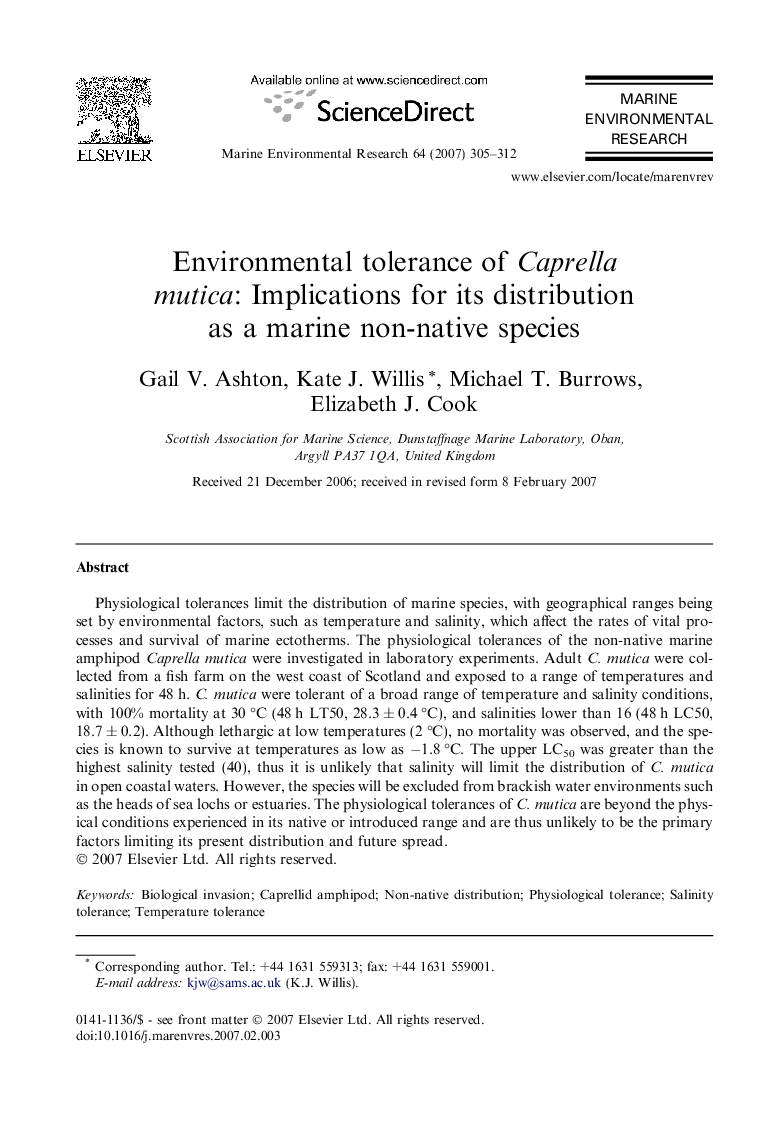| Article ID | Journal | Published Year | Pages | File Type |
|---|---|---|---|---|
| 4551891 | Marine Environmental Research | 2007 | 8 Pages |
Abstract
Physiological tolerances limit the distribution of marine species, with geographical ranges being set by environmental factors, such as temperature and salinity, which affect the rates of vital processes and survival of marine ectotherms. The physiological tolerances of the non-native marine amphipod Caprella mutica were investigated in laboratory experiments. Adult C. mutica were collected from a fish farm on the west coast of Scotland and exposed to a range of temperatures and salinities for 48 h. C. mutica were tolerant of a broad range of temperature and salinity conditions, with 100% mortality at 30 °C (48 h LT50, 28.3 ± 0.4 °C), and salinities lower than 16 (48 h LC50, 18.7 ± 0.2). Although lethargic at low temperatures (2 °C), no mortality was observed, and the species is known to survive at temperatures as low as â1.8 °C. The upper LC50 was greater than the highest salinity tested (40), thus it is unlikely that salinity will limit the distribution of C. mutica in open coastal waters. However, the species will be excluded from brackish water environments such as the heads of sea lochs or estuaries. The physiological tolerances of C. mutica are beyond the physical conditions experienced in its native or introduced range and are thus unlikely to be the primary factors limiting its present distribution and future spread.
Related Topics
Physical Sciences and Engineering
Earth and Planetary Sciences
Oceanography
Authors
Gail V. Ashton, Kate J. Willis, Michael T. Burrows, Elizabeth J. Cook,
